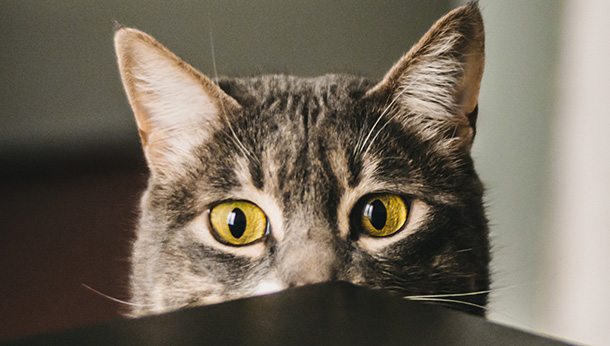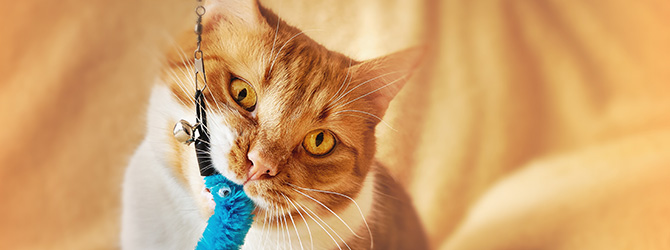What is poisonous to cats?
To help keep your cat safe as they go about their day-to-day activities in your home or garden, we’ve compiled a handy list of the household chemicals, toxic foods, plants and flowers to keep out of their reach.
Let's take a closer look...
Antifreeze
As a loving owner, you’d never dream of feeding antifreeze to your cat! If your cat comes across antifreeze however, they’ll almost certainly gobble it up. To cats, antifreeze tastes delicious.
Antifreeze contains an ingredient called ethylene glycol which, if ingested, can cause severe symptoms and even death.
To protect your cat, it’s important to store antifreeze in a strong, clearly labelled, sealed container, well out of their reach. Be sure to clean spillages immediately and keep your cat away from the area until it’s safe, clean and dry.
If you think your cat has ingested antifreeze, contact your vet or emergency care provider right away.
Read more: Antifreeze poisoning in cats: how to protect your cat.
Household chemicals
Cats often learn to open cabinets so they can get to their favourite treats. Ideally, solutions like bleach, disinfectant and white spirit should be locked away, safe from probing paws.
The same goes for garden chemicals like insecticides and pesticides – both of which are highly toxic – and other products used to treat garden pests, such as slug pellets, which often contain metaldehyde.
Medication
Lots of human medications are poisonous to cats, especially paracetamol. Be sure to keep all of your medicines well out of your cat’s reach at all times.
Be careful if you have a dog and a cat too. Many spot-on flea treatments for dogs contain an ingredient known as permethrin, which is highly poisonous to cats.
Make sure you keep your dog and cat’s flea treatments separate, and that you’re able to tell the difference between the two. Always double check before you give either animal their treatment.
Which plants are poisonous to cats?
The following plants are highly toxic to cats. If you're a cat owner, it's safest to avoid planting them in your garden:
- Lilies
- Daffodils
- Foxgloves
- Mistletoe
- Poinsettia
- Azaleas
- Chrysanthemums
Of all the toxic plants to watch out for, lilies are particularly bad. It doesn’t matter which parts of the plant your cat ingests, and even a small amount can cause problems. Ingesting lilies causes kidney failure in cats, which is often fatal.
Do cats eat flowers?
They aren’t cat food after all, right?
Cats might not always eat flowers, but they do love to play in them. When this happens, the pollen may get on their paws - only to be transferred to the tongue later when the cat is grooming.
Which foods are toxic to cats?
Many human treats are highly toxic to cats - especially our festive favourites!
When tucking into the likes of chocolate, alcohol and sugar-free snacks, whether at Christmas or any other time of year, be sure to keep them out of your kitty's reach!
Read more: 9 Christmas foods that are toxic to pets.
Can cats eat grapes?
Nope! Grapes are highly toxic to cats and can cause fatal kidney failure if ingested. The same goes for raisins.
Luckily, your cat probably won’t show much interest in eating grapes or raisins, but it’s important to keep both foods out of their way, just to be on the safe side.
Can cats eat garlic?
No, you should avoid feeding your cat garlic at all costs.
Garlic contains compounds (known as disulfides and thiosulphates) which can seriously damage a cat’s red blood cells, leading to nausea, abdominal pain, vomiting and diarrhoea. Ingesting even a small amount of raw garlic can cause problems, so make sure you clean up any spillages immediately when making dinner.
Can cats eat onions?
No, you should avoid feeding onions to your cat. Like garlic, onions are part of the allium family and while not as potent as garlic, they can still do harm if ingested in large quantities.

Symptoms of poisoning include:
- Vomiting
- Lethargy
- Difficulty breathing
- Appearing drunk and uncoordinated
- Seizures
If you suspect that your cat has been poisoned, or ingested any of the substances mentioned in this article, contact your local vet or emergency care provider right away.
Need more info?
For expert advice on the substances that are toxic to cats, and the best ways to keep them away from your pet, contact your local vet.
Find your nearest vet using our Find a Vet page, or speak to a vet online today.

